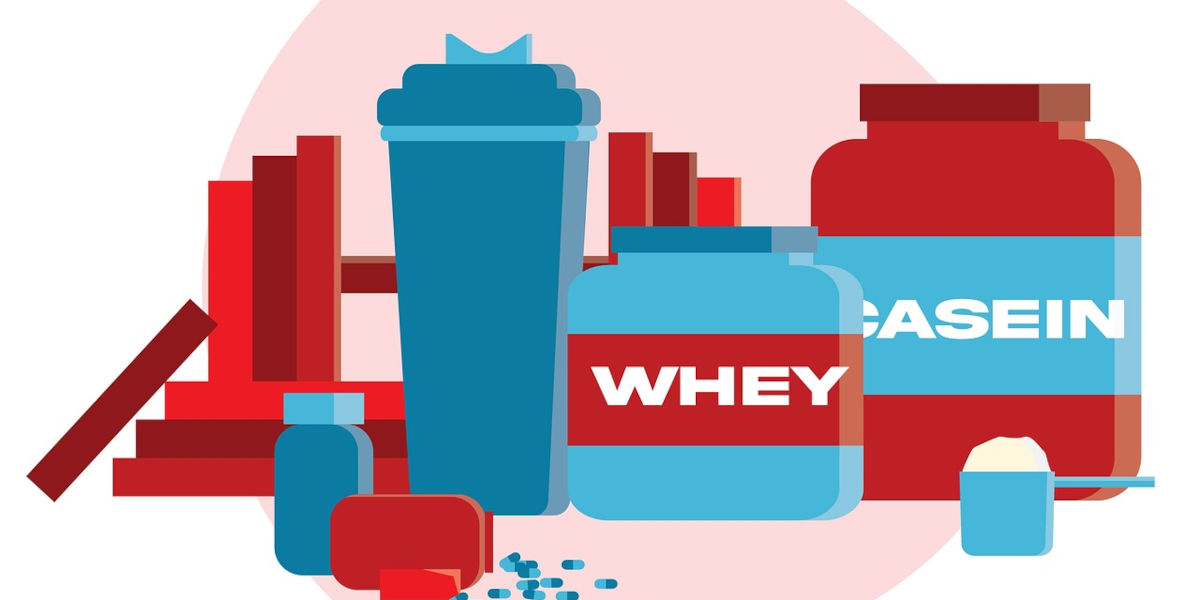Proteins are the building blocks of life, vital for the normal functioning and structure of all living cells. They form the core of our body's repair and growth mechanism and when it comes to muscle growth, proteins are supremely essential. Among the variety of protein sources, one stands out for muscle building - whey protein. Enriched with all the essential amino acids, whey protein has been widely accepted as a valuable supplement for muscle growth. So, the question arises – is whey protein good for muscle building and how much whey protein to take for muscle growth? Let's delve into the topic and unveil the multiple benefits of whey protein.
What is Whey Protein and Why It Matters for Your Muscles?
Whey is basically a by-product of cheese production, a liquid that separates during the process. This liquid is then processed to separate proteins from fats and lactose, and dried to turn it into a powdered supplement form. One of the primary benefits of whey protein is its unique amino acid profile that makes it ideal for muscle building and repair.
The human body typically needs a mix of essential amino acids (those which the body cannot produce on its own) to support muscle growth. Whey protein naturally contains a high proportion of these essential amino acids, particularly Branched-Chain Amino Acids (BCAAs) - leucine, isoleucine, and valine, which play pivotal roles in muscle protein synthesis.
Is Whey Protein Good for Muscle Building?
Decades of scientific research and empirical evidence from fitness enthusiasts globally stand testament to the muscle-building capabilities of whey protein. Whey protein has proven to be an efficient muscle builder due to its fast absorption rate, amino acid profile, and ability to significantly enhance muscle protein synthesis - the process which repairs and rebuilds muscle fibers.
Studies have indicated that incorporating whey protein in your diet can boost muscle growth when coupled with resistance exercise. This is attributed to the high leucine content in whey which acts as a catalyst, stimulating muscle protein synthesis more than other protein forms. By speeding the recovery and regeneration process post-exercise, whey protein helps in maximizing the results of your workout.
How Much Whey Protein to Take for Muscle Growth
The recommendations around the optimal intake of whey protein for muscle growth vary, depending heavily on individual fitness goals, body type, and overall diet. According to the American College of Sports Medicine, for muscle growth, an individual should consume between 1.2 to 1.7 grams of protein per kilogram of body weight per day. This means an average adult male looking to build muscle would typically need about 20-40 grams per serving post-workout.
It's no secret that for centuries, athletes and bodybuilders alike have used whey protein as a key supplement in their workout and dietary regimen. But what exactly is it about whey that makes it such a potent catalyst for muscle growth? Let's delve deeper into the surprising benefits of whey protein and determine just how much you really need to see visible results.
The Power Of Whey Protein
Whey protein is derived from milk and is highly valued as a high-quality source of protein, offering all essential amino acids. Moreover, whey protein is rapidly absorbed and utilized by the body, helping to boost muscle protein synthesis and promote muscle growth. It also plays a supportive role in enhancing recovery and reducing muscle soreness post-workout.
Another surprising benefit of whey protein lies in its capacity to aid in weight loss. Consuming whey protein helps you feel fuller for longer, reducing the tendency to indulge in snack cravings. Furthermore, proteins have a high thermic effect, meaning that your body burns more calories to digest them, indirectly supporting weight management.
How Much Whey Protein Do You Really Need?
The burning question on many fitness enthusiasts' minds is exactly how much whey protein is needed to unlock significant muscle growth. Generally speaking, the recommendation is to consume around 0.8 grams of protein per kilogram of body weight each day for the average adult. But if you are engaging in high-intensity workouts or strength training, your protein needs can elevate to between 1.2 to 2.0 grams per kilogram.
Indeed, it's crucial to remember that individual protein needs can be influenced by many factors, including genetics, age, sex, physical activity levels, and workout intensity. Also, consuming excessively high amounts of protein could potentially strain your kidney or lead to nutritional imbalances. Hence, it is advisable to consult a healthcare professional or a registered dietitian before embarking on a high-protein diet.
Amping Up Your Protein Intake
Incorporating whey protein into your diet doesn't have to be a daunting task. It can be as simple as adding it to your post-workout shakes, morning oats, or even baking it into snacks like muffins or energy balls. The versatility of whey protein powders makes it easy to get creative with your recipes and enjoy the muscle-building benefits they provide.
In conclusion, whey protein is a strategic tool to support muscle growth, recovery, and overall fitness goals. With adequate and sensible use of this excellent protein source, you can unlock maximum strength, endurance, and muscle definition on your athletic journey.




